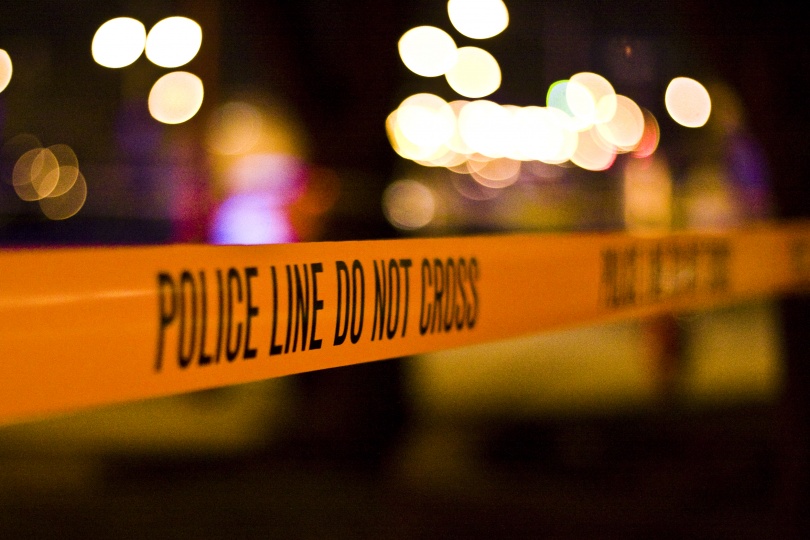Local Crime Reporter Reflects on PTSD
Mike Glenn, a reporter for the Houston Chronicle, writes for the first time about experiencing post traumatic stress disorder.

I've been in close contact with more carnage on the streets of Houston than I ever saw in the Army - including my time leading a platoon of soldiers in combat in Iraq.
In more than 15 years covering crime in America's fourth-largest city, I've seen bodies shot to pieces, torn apart in high-speed crashes and charred in house fires. I've been with drowning victims who were pulled from backyard swimming pools and seen bodies discovered only after the decay caused neighbors to call police because of the stench.
Men and woman. Adults and children.
I've been at crime scenes that became international news events, such as the case of Andrea Yates who drowned her five children in the bathtub of her suburban home in June 2001. I've also been there when the victims were little more than a statistic in a homicide report.
I've been asked, more than once, how many dead bodies I've seen. My standard reply is that I stopped counting when it got to "hundreds and hundreds." (Mind you, I'm not talking about a beloved elder relative, lying in peaceful repose in a funeral casket. I'm talking about people who fling themselves off freeway overpasses or corpses left in the woods that became bloated and putrified over several weeks.)
If the person's death was the result of foul play or a motor vehicle crash, I was their witness. Maybe it would only be a couple of lines in the paper but it was important to me, in some sort of cosmic sense, to record their passing. They were here on this earth and I was with them.
At times, a week or more could pass without a homicide on my watch or I could spend the shift dashing from murder to murder to murder.
This "Butcher's Bill" kept adding up over the days and weeks and months and years.
It's not uncommon for people like cops and firefighters (and yes, even reporters) to build walls around themselves to keep the darkness at bay. Sometimes you have to add a second or third layer of stone.
Just over a year ago, it broke through the walls I had erected.
There wasn't anything particularly memorable about the homicide I went out to cover that night. A man was gunned down while riding his bicycle in a neighborhood in far north Houston that has seen a lot of crime over the years.
I talked to the detectives and scribbled down the pertinent information - just as I had done so many times before.
Then, I saw his bicycle lying on the ground.
I was told the sight of the bicycle was my "trigger." I wrote the story, emailed it to the night-side editor and made my way back downtown.
Then, I had to pull over. I was overcome with nausea. There was a hurricane-like roaring sound in my head. I broke down right on the side of the road. "What the hell was happening to me?" I remember thinking. I pounded the dash board and was able to sufficiently "push it back" so I could finish up my shift and head home that night.
Something happened to me.
I was fatigued even after waking up. My personality began to change. I was irritable, touchy, moody - not violent but clearly peeved at just about everyone and everything. I began having nightmares - often about horrific murders - and would wake up covered in sweat.
I felt like I was awash in a sea of blood. I didn't want to see any more bodies or even write about other aspects of the criminal justice system. It was all too much.
But, I still had a mortgage to pay and a family to support. I did what any soldier would do - suck it up and drive on.
So I continued going to murders, fires and car crashes. The other reporters I saw at crime scenes would have been hard-pressed to know something inside me had broken.
But eventually it began to be noticed in the newsroom and when it affected my work performance, I realized I could not handle this on my own.
Taking the next step and seeking help for my problem was the hardest thing I've ever done. I'm a man who has jumped out of airplanes and fired machine guns in battle so I'm not the type to dabble in this sort of "touchy feely" nonsense.
Now I'm seeing a therapist to deal with what I've been told is my Post Traumatic Stress Disorder. Sometimes PTSD, so I've been told, is the result of experiencing an accumulation of horrors rather than a single traumatic event.
So I sit on a couch and talk - I'm used to that although it's usually me taking notes rather than my therapist.
At this point, it's still "talk therapy" where I'm learning how to cope with my "Black Dog," as Winston Churchill called his own deep-seated anxieties. I'm learning about subjects like "thought stopping" - a technique focused on interrupting problematic thought patterns. While controversial in the mental health community, the process has proved helpful to me.
Now I'm going to work, doing my job and trying to fill my life with as much happiness as possible. I've even started painting - like Winston Churchill.
So why am I telling you this? Why don't I just keep it to myself?
PTSD and journalism is one of the dirty secrets in this business. I know I'm not the only reporter who struggles with it.
I say this to my colleagues - whether print or broadcast. If you need help, get help.
You are not alone. I am with you.

































































































